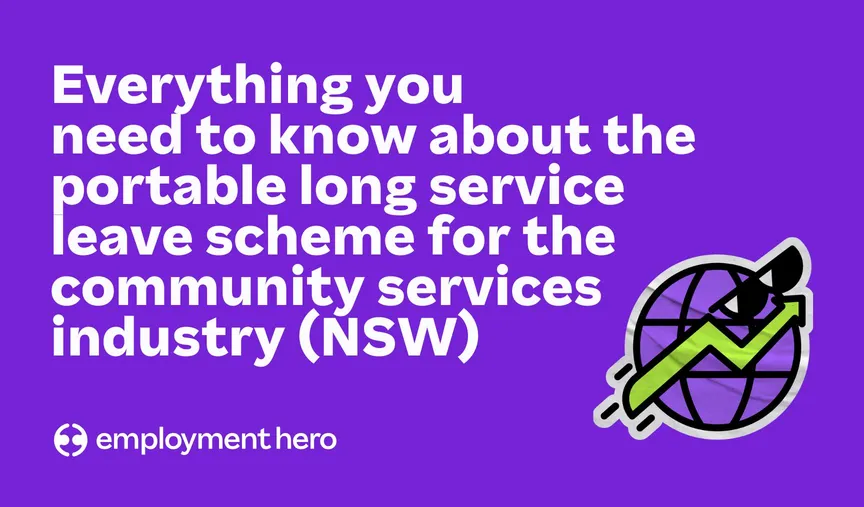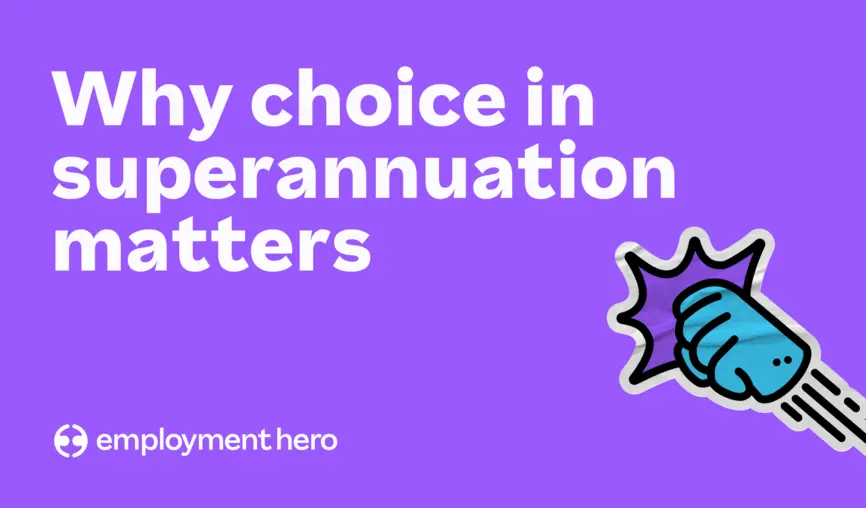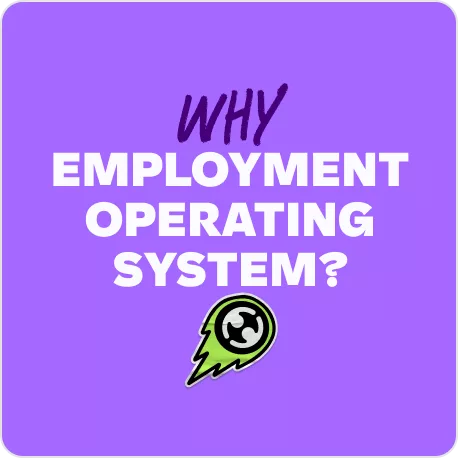How to address nepotism in the workplace and eliminate bias
Let’s talk about nepotism in the workplace and how employers can tackle or manage it.

Are you tired of seeing the boss’s nephew get promoted despite his questionable work ethic? Do you cringe when you hear that the CEO’s daughter is being fast-tracked for a job she may not be qualified for?
It’s time to talk about nepotism and bias in recruitment, and how it’s impacting our workplaces. So grab your popcorn, settle in, and let’s explore how to level the playing field and give everyone a fair shot at success.
Why are so many people talking about nepotism in 2024?
The recent spotlight on nepotism has arisen due to media coverage of ‘nepo babies’ since an article in The New York Times, ‘What Is a ‘Nepotism Baby’?’ was published last year. New York Magazine went on to declare 2022 the ‘Year of the Nepo Baby’. ‘Nepo babies’ refers to children who are born into families that have a legacy of success and influence – usually in the entertainment industry. The term “nepo” is short for nepotism.
Whether or not you would consider them ‘nepo babies’, it’s interesting to know that some celebs have celebrity parents. Here are some you might be familiar with…
- George Clooney: son of news anchor Nick Clooney and the nephew of music legend and actor Rosemary Clooney
- Robert Downey Jr.: son of actors Elsie Downey and Robert Downey Sr.
- Brooklyn, Romeo, Cruz, and Harper Beckham: Children of retired footballer David Beckham and fashion designer Victoria Beckham
- Janhvi Kapoor: Daughter of Bollywood actress Sridevi and producer Boney Kapoor
- Jaden and Willow Smith: Children of actors Will Smith and Jada Pinkett Smith
Nepotism in the entertainment industry is a long-standing issue, where family connections often play a role in securing roles and opportunities. The debate continues to rage on, exploring meritocracy, the ethics of exploiting family ties, and how being born to famous parents can open doors more easily. But while some children of celebrities may have advantages in the industry due to their family connections, many still have to work hard to prove their talent and dedication to their craft.

Billboard Nepotism: Silk’s ‘nepo baby’ ad campaign
In a unique use of nepotism, plant-based milk brand Silk recreated the iconic campaign ‘Got Milk?’ from the 90s. Launched in February 2023, it featured children of celebrities from the original campaign, including Brooklyn Peltz Beckham, Ella Bleu Travolta and Sailor Brinkley Cook, all sporting (dairy-free) milk moustaches. The ad campaign promoted their new product, Silk Nextmilk, and aimed to inspire the next generation to drink plant-based milk.
How do different cultures treat nepotism?
Nepotism is a complex issue that varies widely across cultures around the world. In cultures which value familial ties, nepotism is more accepted and even expected, while in others, it is viewed more negatively and may be actively discouraged.
For example, in many Middle Eastern and Latin American cultures, family connections are highly valued, and nepotism is sometimes seen as a way to support family members, as well as build trust and loyalty. It can also be seen as a way to provide opportunities for family members who may not have had access to education or other resources.
In Confucian cultures such as China, South Korea, and Japan, family connections are also highly valued, but nepotism is often seen as a way to maintain harmony within the family and preserve the family’s reputation.
In many African cultures, family connections are also highly valued, but nepotism is often seen as a way to provide opportunities for members of a wider community, rather than just for family members. For example, a person may be more likely to hire someone from their village or ethnic group, rather than a close family member.
By contrast, in many Western cultures such as the United States, Australia, New Zealand and Europe, nepotism is generally viewed more negatively, and there is often a greater emphasis on meritocracy and the notion that people should be hired and promoted based on their skills and qualifications, rather than their family connections and influence.
What is nepotism in the workplace?
Cambridge Dictionary defines nepotism as “the act of using your power or influence to get good jobs or unfair advantages for members of your own family”. Generally, nepotism in the workplace refers to the practice of favouring family members or close friends over other qualified individuals when it comes to hiring, promotions, or other career opportunities.
The issue is where a person uses their power or influence to an unfair advantage, which can lead to a lack of diversity and equal opportunity in the workplace.
This is why many companies have policies in place to prevent nepotism in the workplace, such as prohibiting the hiring of family members or requiring disclosures of relationships between employees. Such policies help to ensure that hiring and promotion decisions are based on merit and qualifications rather than personal relationships.
Creating an inclusive workplace culture can help mitigate the impacts of nepotism by promoting fairness and equality. For tips on fostering inclusivity, check out this guide: 7 ways to create an inclusive workplace.
Is hiring family members or friends always considered nepotism?
Hiring family members or friends can sometimes be appropriate and not considered nepotism, especially if they are truly the best qualified candidates for the job and if their hiring is done in a fair and transparent manner.
For example, if a company has a job opening and a family member or friend applies for the position and is the most qualified candidate, it would not be considered nepotism to hire them. However, if the company creates a job specifically for the family member or friend and bypasses the normal hiring process or hires them despite being less qualified than other candidates, it would be considered nepotism.
It’s important to ensure that the hiring process is fair and transparent to avoid the appearance of favouritism or nepotism, as well as to ensure that the best candidates are selected for the job.
That being said, it is common for small businesses, especially family businesses, to employ friends and family. They may even have employee referral incentive schemes like in larger firms. This is because recruitment can be an expensive process, and hiring someone you know or who you know has values that align with the business can save money in the long term. The issue is that such practices can cause harm when the person being hired is not the best candidate for the job.
To avoid hiring regrets, consider these tips on how to hire the right person every time: How to hire the right person every time. 
How can nepotism impact company culture?
Reduced employee morale
When family members or friends are given preferential treatment, other employees can feel like their hard work is not being recognised or valued. This can lead to resentment and a decrease in morale, which can ultimately impact productivity and job satisfaction.
Lack of diversity
Nepotism can lead to a lack of diversity in the workplace, as family members or friends who are hired or promoted may share similar backgrounds, experiences, and perspectives. This can limit the creativity and innovation of the company and hinder its ability to compete in the marketplace.
Poor performance
Nepotism can lead to unqualified or underqualified employees being hired or promoted, which can lead to poor performance and a decrease in overall company productivity. If an individual is not qualified for their position, it can ultimately lead to the failure of the business.
Recognising transferable skills during the recruitment process can help ensure that the best candidates are selected, even if they don’t have traditional qualifications.
What is the difference between favouritism and nepotism?
Favouritism and nepotism are similar concepts, but there is a difference between the two.

Favouritism refers to the practice of showing preference for someone based on personal connections, such as friendship or likeability. This can lead to unfair treatment of other employees who are not favoured in the same way. For example, a manager may give a promotion or more favourable treatment to an employee they like on a personal level, regardless of that employee’s qualifications or performance.
Nepotism, on the other hand, refers specifically to the practice of favouring family members or close friends in hiring or promotions.
Is nepotism common in business?
Nepotism is a controversial topic in politics and business, with some entrepreneurs benefiting from family connections and the privilege they were born into. Here are a few well known examples:
- Ivanka Trump and her husband Jared Kushner were both appointed as advisors to former US President Donald Trump, despite having no prior government experience. Ivanka Trump is the daughter of Donald Trump and Kushner is his son-in-law.
- Dylan Lauren, daughter of fashion designer Ralph Lauren and founder of Dylan’s Candy Bar, a chain of candy stores.
- David Cameron, former UK Prime Minister, was accused of nepotism after he appointed close friends and acquaintances to government positions. This included giving jobs to his former university friends and his wife’s personal stylist.
- Richard Branson, the founder of Virgin Group, has children who have gone on to become entrepreneurs in their own right, including Holly Branson and Sam Branson.
- The Murdoch family, which owns a number of major media outlets in the UK and Australia, has been accused of nepotism due to the number of family members who hold influential positions in the company. Lachlan Murdoch serves as the executive chairman of News Corp, while his brother James Murdoch was accused of nepotism after he was appointed as the Chairman of Sky.
But just like in showbiz, some entrepreneurs may benefit from their family connections, while there are many others who have succeeded through hard work, innovation, and dedication to their craft. Success in entrepreneurship often depends on factors such as market timing, product quality, and a host of other factors beyond the family they were born into.
What should companies do if they discover that nepotism has occurred in their workplace?
If a company discovers that nepotism has occurred in their workplace, it’s important to address the situation quickly and effectively to avoid any abuse of authority, and prevent any negative impact on the company culture, morale, and productivity. Here are some steps that companies can take:
1. Investigate
Companies should conduct an investigation to determine the extent of the nepotism and identify any potential issues, including those related to legal compliance.
2. Take corrective action
Based on the findings of the investigation, companies should take corrective action to address any negative impact of nepotism. This may include reassigning roles, terminating employment, or implementing new policies and procedures to prevent future instances of nepotism.
3. Communicate with employees
Companies should communicate with employees to ensure that they understand the situation and the corrective action being taken. This can help to alleviate any concerns or resentment among employees and promote transparency and fairness.
4. Implement policies and procedures
Companies should establish clear policies and procedures related to equal employment, fair hiring and promotion practices to prevent future instances of nepotism. This may include requiring disclosures of relationships between employees, establishing a diverse hiring committee, or requiring multiple levels of approval for hiring and promotion decisions.
5. Train and educate employees
Companies should train and educate employees on the importance of fair hiring practices and the negative impact of nepotism. This can help to establish a culture of fairness, transparency, and diversity in the workplace.

How can companies ensure that their hiring process is fair and unbiased?
It’s vital that businesses take measures to ensure that their hiring processes are fair and unbiased throughout the recruitment life cycle. Here are our top tips for getting it right.
Create clear job descriptions
Start by creating clear job descriptions that outline the essential qualifications and skills required for the position. This can help to ensure that candidates are evaluated based on their ability to perform the job duties, rather than subjective criteria.
Use objective criteria
Develop objective criteria for evaluating candidates, such as experience, education, and skills. Avoid relying on subjective criteria, such as personal connections or likability, which can lead to bias. You need to take steps like this to avoid unconscious bias in recruitment.
Diversify your candidate pool
Cast a wide net to attract a diverse pool of candidates. Your talent sourcing strategy can include posting job listings in a variety of places, reaching out to underrepresented groups, and partnering with local organisations that support diversity and inclusion.
Conduct structured interviews
Use structured interviews to ensure that all candidates are asked the same set of questions and evaluated based on the same criteria. This can help to prevent bias and ensure that candidates are evaluated on their qualifications and skills.
Use assessment tools
Use assessment tools, such as skills tests or job simulations, to evaluate candidates’ abilities and skills objectively. This can help to ensure that candidates are evaluated based on their ability to perform the job duties, rather than subjective criteria.
Monitor the hiring process
Monitor the hiring process to ensure that it is fair and unbiased. This can include tracking the demographics of candidates and evaluating the effectiveness of the recruitment and selection process.
By taking these steps, you can help to ensure that your hiring process is fair and unbiased, which can promote diversity, inclusion, and a positive workplace culture, as well as help you avoid making a bad hire.
While these tips apply to businesses of all sizes, we’ve got additional guidance for recruitment for our small business friends.
What if someone related to you is truly the best person for a role in your workplace?
Recruitment is never a straightforward process, but if someone related to you is truly the best person for a role in your workplace, it’s important to approach with additional care to avoid any appearance of nepotism.
Here are some actions that we recommend:
- Disclose the relationship. Be transparent about the relationship and inform your colleagues and superiors of the situation. This can help to establish trust and demonstrate that you are acting in an open and honest manner.
- Ensure fairness in the hiring process. Ensure that the individual goes through the same hiring process as any other candidate, and is evaluated based on their qualifications and skills. This can help to demonstrate that the individual was hired based on merit, rather than nepotism. Using transparent processes like recruitment software can be a massive help.
- Obtain multiple levels of approval. Consider obtaining multiple levels of approval for the hiring decision, such as involving a hiring committee or obtaining approval from a superior. This can help to ensure that the decision is made objectively and with input from multiple parties.
- Establish clear policies. Establish clear policies and procedures related to hiring practices, including any disclosures required for relationships between employees. This can help to prevent any appearance of nepotism and establish a fair and consistent hiring process.
At the end of the day, when someone related to you is truly the best person for a role in your workplace, it’s important to handle the situation with transparency, fairness, and objectivity. That’s the golden rule to building and maintaining a diverse and awesome workplace culture.
Remember, creating an inclusive workplace is key to mitigating the impacts of nepotism. Learn more about fostering inclusivity here: 11 ways to foster happiness in the workplace.
Related Resources
-
 Read more: NSW Government introduces Portable Long Service Scheme for the Community Services Industry
Read more: NSW Government introduces Portable Long Service Scheme for the Community Services IndustryNSW Government introduces Portable Long Service Scheme for the Community Services Industry
The NSW Government has introduced portable long service leave for the community services industry. Learn what it is and what…
-
 Read more: Payday Super changes: What we’re fighting to fix and why it matters to you
Read more: Payday Super changes: What we’re fighting to fix and why it matters to youPayday Super changes: What we’re fighting to fix and why it matters to you
Big changes are coming to how superannuation is paid in Australia. Here’s what we’re asking Treasury to seriously consider updating…
-
 Read more: Why choice in superannuation matters
Read more: Why choice in superannuation mattersWhy choice in superannuation matters
What could be coming when Payday Super hits and what Employment Hero is doing about it.












